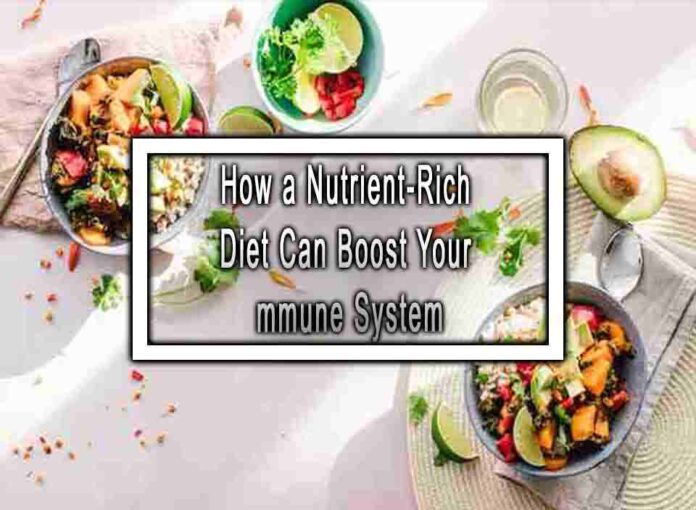A nutrient-rich diet plays a crucial role in supporting and boosting your immune system’s function. The immune system is a complex network of cells, tissues, and organs that work together to defend the body against infections and diseases. Providing your immune system with the right nutrients helps it function optimally and respond effectively to threats. Here’s how a nutrient-rich diet can boost your immune system:
1. Vitamins and Minerals
Essential vitamins and minerals, such as vitamin C, vitamin D, zinc, and selenium, are key players in immune function. They help regulate immune responses, support the production of immune cells, and enhance the body’s ability to fight off infections. Foods rich in these nutrients include citrus fruits, berries, leafy greens, fish, nuts, seeds, and whole grains.
2. Antioxidants
Antioxidants are compounds that help protect cells from damage caused by harmful molecules called free radicals. A diet rich in antioxidants, found in colorful fruits and vegetables like berries, oranges, spinach, and bell peppers, can help reduce oxidative stress and inflammation, both of which can weaken the immune system.
3. Protein
Protein is essential for the production and maintenance of immune cells, antibodies, and enzymes that are involved in immune responses. Incorporate lean sources of protein, such as poultry, fish, beans, lentils, and tofu, into your diet.
4. Omega-3 Fatty Acids
Omega-3 fatty acids have anti-inflammatory properties that support the immune system by reducing chronic inflammation. Fatty fish like salmon, chia seeds, flaxseeds, and walnuts are excellent sources of omega-3 fatty acids.
5. Probiotics and Fiber
A healthy gut microbiome is closely linked to a strong immune system. Probiotics, found in yogurt, kefir, sauerkraut, and other fermented foods, promote a diverse and balanced gut microbiota. Fiber-rich foods like whole grains, fruits, vegetables, and legumes also support gut health by providing nourishment for beneficial gut bacteria.
6. Hydration
Staying adequately hydrated is essential for immune function. Water helps transport nutrients to cells, flushes out toxins, and supports the proper functioning of immune cells. Herbal teas, broths, and water-rich fruits and vegetables contribute to your daily hydration needs.

7. Balanced Diet
A well-rounded, balanced diet ensures you get a variety of nutrients to support all aspects of immune function. Avoid excessive consumption of sugary, highly processed foods, as they can suppress immune function and contribute to inflammation.
Remember that boosting your immune system is a holistic process that involves multiple factors, including lifestyle, exercise, stress management, and avoiding harmful habits like smoking and excessive alcohol consumption. While a nutrient-rich diet is a fundamental component, it’s important to adopt a well-rounded approach to maintaining a strong and resilient immune system. If you have specific health concerns or dietary needs, it’s recommended to consult with a healthcare professional or registered dietitian.











